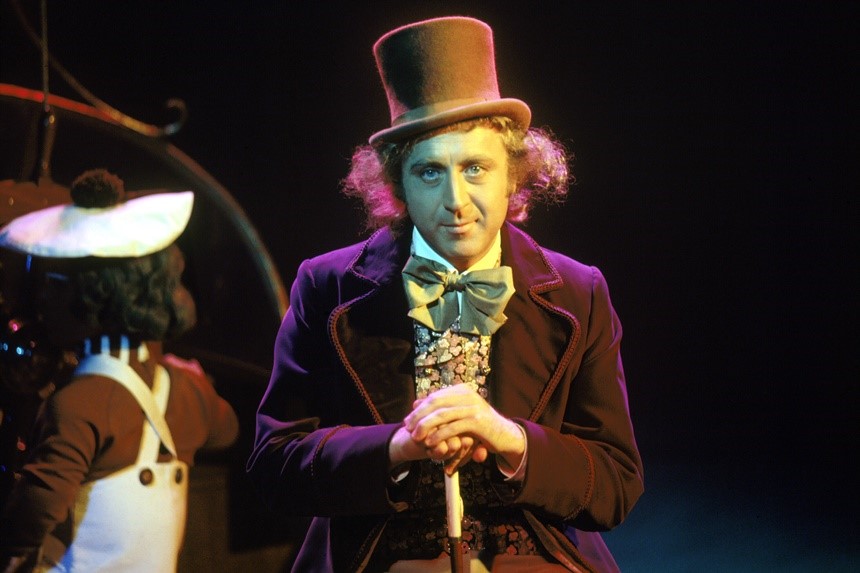Remembering Gene Wilder
⭐️ ⭐️ ⭐️ ⭐️
Run Time: 1 hour 32 minutes
Stars: Gene Wilder, Mel Brooks, Alan Alda, Carol Kane, Harry Connick Jr.
Writer: Glenn Kirschbaum
Director: Ron Frank
There are a few departed show biz celebrities that I truly, achingly, miss, but none more so than Gene Wilder — the doe-eyed, frazzle-haired, wondrously human star of Young Frankenstein, Willy Wonka & the Chocolate Factory, The Producers, and some ridiculously entertaining comedies with Richard Pryor.
Wilder’s 40-year career of classic films (and forgettable misfires) speaks for itself. But this adoring documentary from director Ron Frank (When Comedy Went to School) offers a tender coda; a welcome reminder that those emotionally unpredictable but essentially decent souls Wilder often played got their authenticity from being, at heart, a lot like him.
The film enlists an impressive gallery of stars to regale us with Wilder memories: old friends like Alan Alda, Harry Connick, Jr., Carol Kane, and Rain Pryor, Richard’s comedian/actress daughter. Even a grownup Peter Ostrum, who played Charlie in Wonka, stops by to recall the man’s soothing presence on the set.
Despite that star power — along with a library of home movies and a bottomless well of memorable clips — the filmmakers wisely held up production until they could land an extensive sit-down with Mel Brooks, the man who plucked Wilder from his labors as a New York stage actor and plunked him down in his Oscar-winning dark comedy, The Producers.
Brooks may be pushing 100, but here he’s clearly energized by the memory of Wilder. He bristles with oft-told tales of how he introduced the timid young actor to the boisterous Zero Mostel (Zero kissed Wilder on the lips), dealt with the nearly impossible task of keeping the crew from laughing on the Young Frankenstein set, and, over the course of a weekend, enlisted Wilder to step into the role of Blazing Saddles’ Waco Kid after the actor he hired, Oscar-winner Gig Young, ironically proved too drunk to play the alcoholic gunslinger.
Brooks and Wilder remained friends for life, but they parted professionally after Young Frankenstein. That’s when the actor embarked on an ill-advised auteur period, writing, directing, and starring in films (among them The World’s Greatest Lover and The Adventure of Sherlock Holmes’ Smarter Brother) that really could have used a second or third pair of eyes. Peppered among those misfires, however, were some truly successful movies — all written and directed by others — including the best of his Richard Pryor collaborations (Silver Streak and Stir Crazy). Here, the film deftly defines the personality contrasts between scrupulously professional Wilder and wildly unpredictable Pryor: Pryor’s daughter observes, not surprisingly, that Wilder and her dad never became friends, despite their onscreen chemistry.
From Wilder’s personal perspective, however, that period’s most significant project was 1982’s Hanky Panky, which paired him with Gilda Radner, a former late-night TV star who was, at the time, struggling to define herself in the movies.
In later years, Wilder often insisted he did not fall for Gilda right away. But a 1982 interview excerpt here suggests otherwise. “If you want to know what I think of her,” an uncharacteristically beaming Wilder tells the interviewer, “it’d be ‘More than wonderful.’”
The pair married 1984. Gilda Radner died of ovarian cancer in 1989. After that, Wilder would make just two more half-hearted theatrical comedies, the final one being Another You, a disastrously unfunny outing with Pryor, now visibly battling multiple sclerosis.
From the start, there seemed to be a subtext of melancholy to just about every part Gene Wilder played, from the solitude of Willy Wonka to the nagging insecurity of Dr. Frederick Frankenstein (“Frahnk-un-shteen”). After Gilda, even his fans seemed to internalize that sense of undefined sadness: From his failed 1994 sitcom to his whispered rendition of “Soup of the Evening” in 1999’s Alice in Wonderland TV special, no matter how funny he was, we couldn’t help but seek out that fleeting moment of unresolved grief.
By all accounts, Wilder found endless delight in his marriage to a clinical supervisor for the New York League for the Hard of Hearing, whom he’d met while preparing to play a deaf character. He painted, he wrote novels, he gave endless interviews (including one with me, during which he related many of the same stories told in this film).
In the end, Remembering Gene Wilder depicts its subject going gently into that good night, enveloped in the fog of Alzheimer’s, listening to Ella Fitzgerald singing “Over the Rainbow.”
Sad and sweet. Just like Gene Wilder.
Become a Saturday Evening Post member and enjoy unlimited access. Subscribe now



